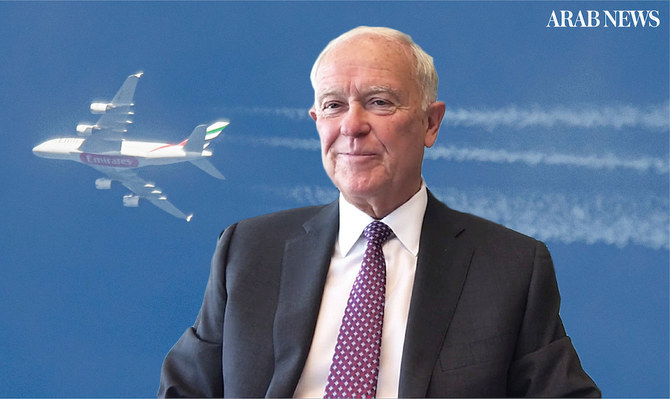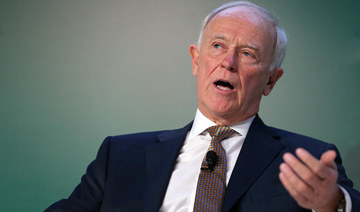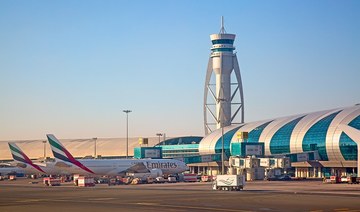DUBAI: Emirates will be back to full capacity by next summer as the pandemic-stricken aviation industry enjoys an “exceptional surge” in passenger numbers, Sir Tim Clark, the airline’s president, told Arab News.
“Taking the short-term view, I think we’ve got another six months of difficulty. If you ask me about the summer of 2022, I’m fairly confident that next year we’ll see a completely different picture, and that certainly airlines like Emirates will have restored themselves to full capacity, albeit possibly six months later than we originally thought,” he said.
“Once the pandemic is over, there will be a tsunami of demand from people wanting to travel — whether it be friends and relatives, second homes, business, leisure — the multiple segments all of which have been suppressed over the last 15 or 16 months,” Clark added.
He gave his confident forecast during an interview on Frankly Speaking, the series of video interviews with influential policy-makers and business people.
In the course of a wide-ranging discussion about the Dubai-based carrier and the global aviation industry, Clark spoke of the improving financial situation at Emirates, which lost $5.5 billion last year, as well as the possibility of a merger with rival Abu Dhabi airline Etihad.
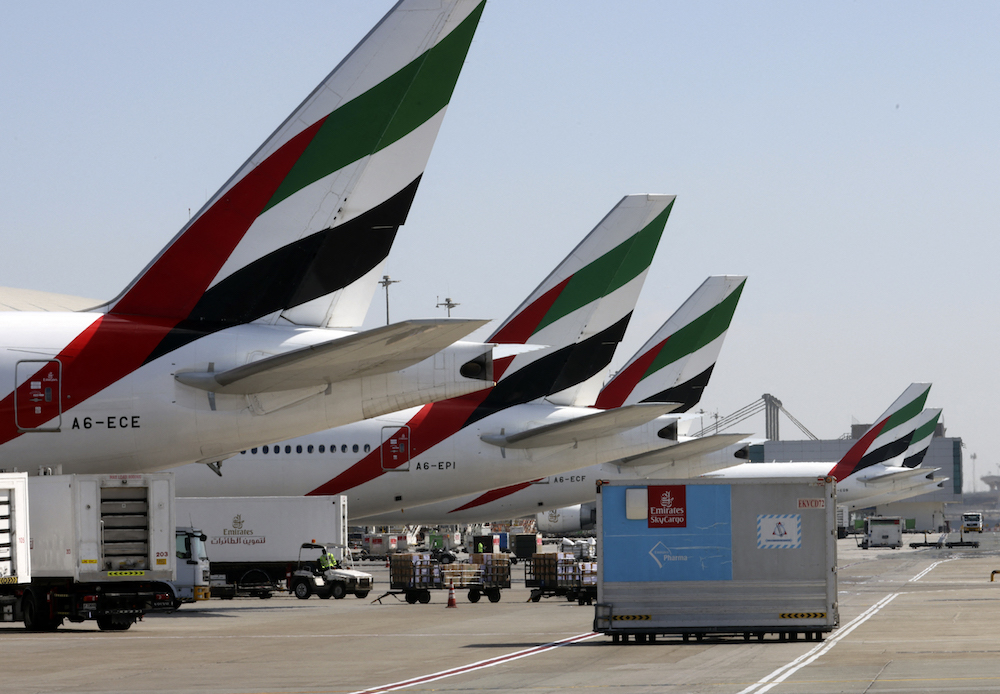
Emirates has suffered financially during the pandemic lockdown, which grounded its fleet entirely for two months before a selective reopening from last summer. (AFP/File Photo)
He also discussed the future of the A380 aircraft, which has not taken to the air since the pandemic struck last year, and offered some expert advice to Saudi Arabia as the Kingdom plans to launch a second international airline.
He was adamant that the Emirates business model — providing global connectivity around the Dubai hub for an ever-increasing air travel market — would be effective “in perpetuity.”
“Are you suggesting that people won’t travel, that they won’t want to do all the things that they did prior to the pandemic? Are you suggesting that, as many do, that you and I talking on these video conferencing platforms is going to kill the need to travel on business? Are people not going to travel for holidays, for leisure, for visiting friends and relatives for the multiplicity of reasons that people travel across the planet,” he asked.
“Dubai will reassert itself as a global super hub. It’ll strengthen that. The airport will strengthen, and we’ll have more cities on the network within the next three to five years. So just watch this space.”
Dubai was right to reopen its economy and its airline last year even as the pandemic raged around the world and new variants of the virus emerged, Clark insisted.
“They were first movers, remember, in establishing lockdown in April and May last year. They were early movers in the acceptance that vaccines are going to sort the problem out eventually. So, did they make the right decision? Yes, they did. The airline adapted fairly quickly as it has done to the downturn as a result of new variants coming out, but again the town, the city (Dubai), will adapt. It’s known for its adaptability,” he said.

During a Frankly Speaking interview, Clark spoke of the improving financial situation at Emirates, which lost $5.5 billion last year, as well as the possibility of a merger with rival Abu Dhabi airline Etihad. (AN Photo)
The US air travel market would be the first to show a significant increase, he said, followed in “fits and starts” by Europe and the rest of the world, as vaccines are rolled out globally and medical treatment for the infection improves. But Clark was uncertain as to when the important UK air routes with the UAE would reopen without quarantine and other restrictions that have kept that market depressed.
“My own view has been expressed fairly forcefully to the UK government and I know the UAE foreign ministry has been fairly assertive on this. There is no reason why the UAE should be on the red list at all in my view, particularly as the country is so well on top of the problem,” he said.
The UK has said it will fully reopen its economy later this month, on July 19, but was unsure whether this would mean full reopening of flights with the UAE.
“They’ve got to accept of course that if their citizens have been vaccinated and go anywhere, the reciprocal has got to be in place. I think with all that, the evidence will suggest that probably by August, September they will be more relaxed about entry and travel,” he said.
Clark also hopes that by the autumn Saudi Arabia would reopen the lucrative routes between Dubai and business centers in the Kingdom, which have been closed because of pandemic precautions.
He offered advice to the Kingdom’s policymakers as they plan the launch of a second international airline alongside Saudia.
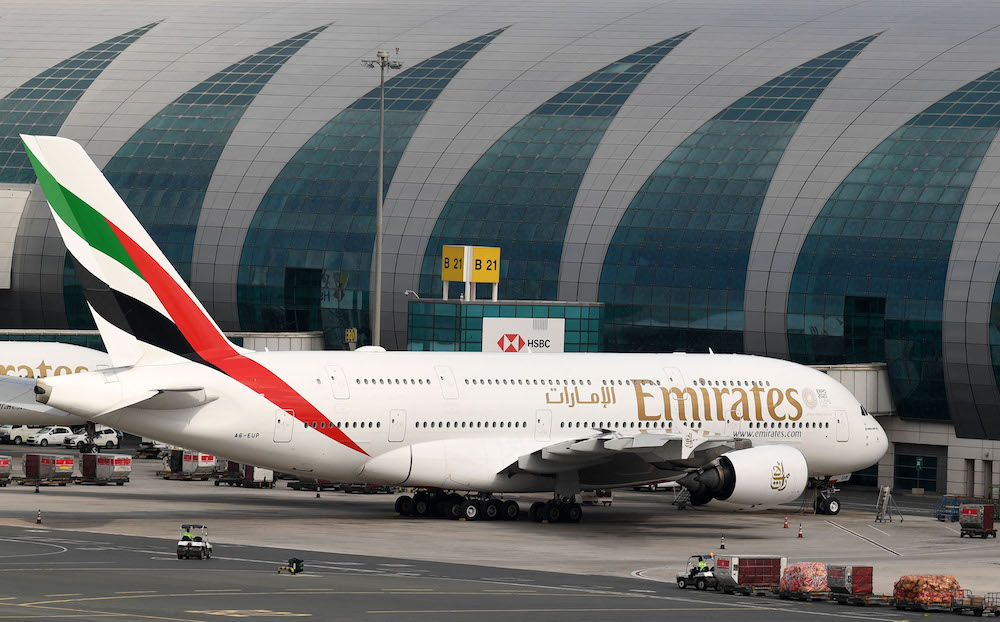
An Emirates Airbus A380-842 grounded at Dubai international Airport after Emirates suspended all passenger operations amid the COVID-19 coronavirus pandemic, on March 24, 2020. (AFP/File Photo)
“With anything like this, you’ve got to have the right people who know what they’re doing. They obviously need a large amount of cash to get things going, which I’m sure they have in Saudi Arabia. If they believe that an additional airline, perhaps operating a slightly different business model, will be necessary, I’m sure they’ll just get on with it,” he said.
Emirates has suffered financially during the pandemic lockdown, which grounded its fleet entirely for two months before a selective reopening from last summer. But Clark foresees an end to losses “probably within the next year or two”, although it is still unclear whether the airline will need more support from the Dubai government on top of the $3.1 billion it has already received.
“It’s anybody’s guess. Much will depend on what happens over the next six and nine months. The cash burn has slowed, and we are not in a cash critical situation at the moment. I am 100 percent convinced that the Dubai government will do what it takes to ensure that Emirates is financially secure,” he said.
He expected the Expo 2020 world exhibition that begins in Dubai in October to provide a “fillip” to the airline’s business.
The financial damage from the pandemic has again raised the issue of a merger between Emirates and Etihad, but Clark said this matter was “well above my pay grade.” He believes there will be more operational and backroom collaboration between the two airlines, but that did not imply a full-blown merger, which would require a deal between the governments of Dubai and Abu Dhabi.
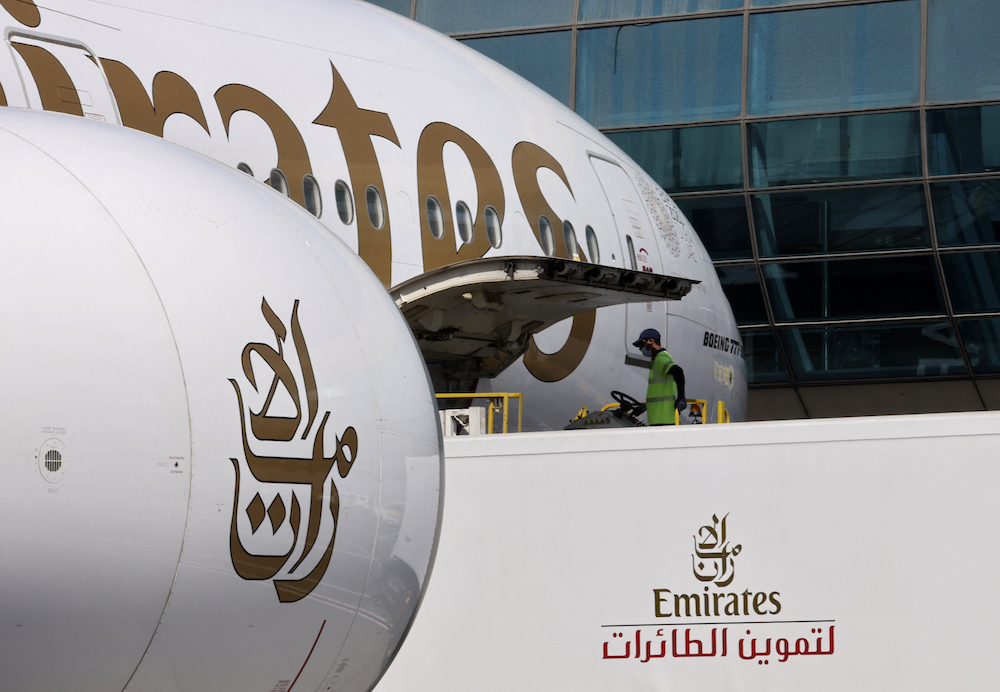
Clark is adamant that the Emirates business model — providing global connectivity around the Dubai hub for an ever-increasing air travel market — would be effective “in perpetuity.” (AFP/File Photo)
The Airbus A380 wide-bodied plane was critical to Emirates’ expansion and profitability before the pandemic struck, but more than 100 of the planes have been parked since last year. There are plans to return some to service this summer, and Clark was confident about the aircraft.
Emirates has just taken delivery of two new A380s, and three more are being delivered in November, although the European manufacturer has said it will not build any more of the aircraft. “So, in the fullness of time of course it will have to go, but, in the meantime, we will work this aircraft, we will spend money on it, to refurbish it, to improve the product, make it even more attractive,” he said.
Clark, who has been with Emirates for three and a half decades, was due to retire last year, but agreed to stay on to deal with the pandemic. He declined to say whether a new departure date had been set.
“I’ve got a great bunch of guys I work with, and they’ve been working with me for the last 20 years. So, goodness me, the shareholder has got plenty of opportunity to select or do what they want to do with regard to the business. It’s not really relevant in the scheme of things whether I’m here or not,” he said.
He added that he hopes to stay on with the airline in an advisory capacity after he steps down from the presidency, and would like to focus on charitable activities like the Emirates Airline Foundation. But he did not rule out another big job in global aviation.
“I’m not saying I wouldn’t do it if I was asked, but I would prefer to get involved in things other than the commercial world,” Clark said.
-----------------
Twitter: @FrankKaneDubai


